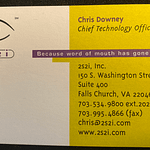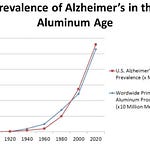Mr. Gottstein explains:
On November 28, 2006, I was in Alaska, so it was dark already in mid-afternoon. It was just a normal day until Dr. David Egilman called me out of the blue. He told me that he had been hired as an expert witness by one of the law firms representing patients who contracted diabetes or other metabolic diseases after taking Zyprexa. He said he wanted to know about related documents that I might have. I soon learned that he was actually feeling me out to see whether I would be willing to subpoena him. His goal was to have me compel him to send out the secret corporate documents he had. This would make them public, and he believed the crimes should be uncovered.
These documents revealed that the Eli Lilly pharmaceutical company had aggressively suppressed records proving that Zyprexa caused these life-threatening conditions. In addition, these showed that Lilly had illegally marketed this powerful and dangerous drug for use in children and the elderly. He wanted me to send the files to Alex Berenson, a reporter for The New York Times. Alex was already working on a Zyprexa exposé.
Less than a month later, The New York Times began a series of front-page stories about these documents. These became known as the “Zyprexa Papers.” A month to the day after the first of these New York Times articles, Gottstein was hauled in front of the legendary United States District Court judge, Jack Weinstein, of the Eastern District of New York in Brooklyn. Although Mr. Gottstein believed he obtained the documents legally, Judge Weinstein decided he had conspired to steal the documents, and Lilly threatened him with criminal contempt charges.
The Zyprexa Papers by Jim Gottstein is a riveting, first-hand account of these events. It includes new details about how a small group of “psychiatric survivors”—people who had escaped the grasp of medications and psychiatrists—spread the Zyprexa Papers untraceably on the Internet. It is a gripping, plain-language legal thriller. Gottstein explains the maneuvering during his battles on behalf of Bill Bigley, his psychiatric patient client. Bill’s ordeal made possible the Zyprexa Papers’ exposure and later a $1.4 billion federal settlement against Lilly.
REVIEWS
The Zyprexa Papers, by David Antonuccio, Ph.D., Ethical Human Psychology and Psychiatry, Volume 22, Number 2, 2020, published April 2021.
You don’t have to be an activist to appreciate this book. But you do have to be someone who cares about your fellow humans who might be harmed at the altar of corporate greed. If you fall into that category, then you’ll want to read this book.
The Zyprexa Papers, by David Healy, Psychosis, June 19, 2020
Many people coming to this book might figure that the Bigley saga plays second fiddle to what is after all called The Zyprexa Papers. A switch from the dizzying heights of New York courtroom drama to an Alaskan backwater. But Bill Bigley’s case is the beating heart of this book. The Zyprexa papers are the bait for Gottstein’s masterly portrayal of how the system treated Bill and will treat you and anyone you know who comes into contact with it. . . . Gottstein waited 7 years to finish this book. It takes a certain amount of time and distance to write a book as good as this.
The Zyprexa Papers: A Legal System for Drug Companies and Lawyers . . . Not the Public, by Bruce E. Levine, CounterPunch, September 4, 2020
The Zyprexa Papers is not simply about the harm done by blockbuster psychiatric drugs and drug company illegal marketing. It is also about the perversion of the U.S. legal system, as Gottstein illuminates the courts’ use of secrecy orders in settlement agreements to the detriment of the public.
Outing Drug Company Corruption Comes at a Cost, by Maryanne Demas, Indian Journal of Medical Ethics, December 29, 2020.
Harvard-trained lawyer Jim Gottstein is the author of the new book, The Zyprexa Papers. It is a compelling, first-hand account of how a humble attorney from Alaska manages to expose the rot inside one of the biggest pharmaceutical companies in the world. . . . In my view, the most important aspect of the book – and why it is worth reading – is that it highlights the obligation of doctors to become fully informed about the harms of antipsychotic drugs and raises awareness of the circumstances in which a patient’s right to consent to medical therapy is violated.
Heroes and Villains Populate the Pages of "The Zyprexa Papers", by Susan Rogers, Key Update, May 18, 2020.
The Zyprexa Papers is a deep dive into the bizarro world of psychiatry, big Pharma, and the judicial system. As Jim writes, “To me, it is crystal clear locking people up and drugging them against their will is not ‘for their own good’ but instead very harmful to them. One of my goals in writing this book is to show this truth.” Mission accomplished.
The Zyprexa Papers by Jim Gottstein, Eric Maisel, Ph.D., February 4, 2020.
The Zyprexa Papers. Sounds like a thriller starring Denzel Washington and Julia Roberts. It’s not. It’s the riveting account of Alaska attorney Jim Gottstein's encounter with the pharmaceutical giant Eli Lilly, a battle centered around Eli Lilly's wanton misuse of the drug Zyprexa.
Big Pharma Meets Big Diagnosis, Big Courts, and Big Psychiatric Hospitals, by Paula J. Caplan, PhD, Mad in America, January 31, 2020.
Jim Gottstein’s blockbuster new book, The Zyprexa Papers, is essential reading. It should be required reading for every well-meaning friend or family member of someone who suffers emotionally, as well as for legislators who genuinely want to weed out corruption and harm.
Big Pharma: drugging involuntary psychiatric patients, by Tom Sandborn, DooneysCafe.com, July 2, 2002, is another review.
Also see the Amazon reviews, a written interview, and several podcasts.
Jim Gottstein grew up in Anchorage, Alaska where his father was a prominent businessman and his mother one of the most beloved women in town. Jim was on track to go into the family grocery and real estate empire. He was studying business at the University of Oregon when he found his calling during a law class. He passed every test without missing any questions, and he realized he was born to be a lawyer. He managed to be accepted to the Harvard Law School. He was the only sky-diving applicant they had from Alaska that year.
After graduating in 1978, Jim went into private practice in Anchorage with Robert M. Goldberg. His primary work was representing Alaska native organizations.
In 1982, he experienced a psychotic break due to sleep deprivation and was introduced first-hand to the mental illness system. He was informed that he would be mentally ill permanently and that he could never practice law again. Luckily, he had a fantastic psychiatrist who steered him away from drugs and helped him recover.
This experience led him to advocate for people diagnosed with mental illness. In 2002, he founded the Law Project for Psychiatric Rights (PsychRights). His goal was to mount a strategic litigation campaign against forced psychiatric drugging and electroshock. He also wanted to bring these harmful practices into public view.
Jim opened his own law office in 1985 and focused primarily on business matters. He is now semi-retired.
In The Zyprexa Papers, Gottstein lifts the veil of secrecy around Big Pharma’s profit-driven attack on human rights and human health.
Here is a bio of Mr. Gottstein’s work related to psychiatry and a 9-minute YouTube talk. More information about his projects is on the Law Project for Psychiatric Rights website.














Share this post